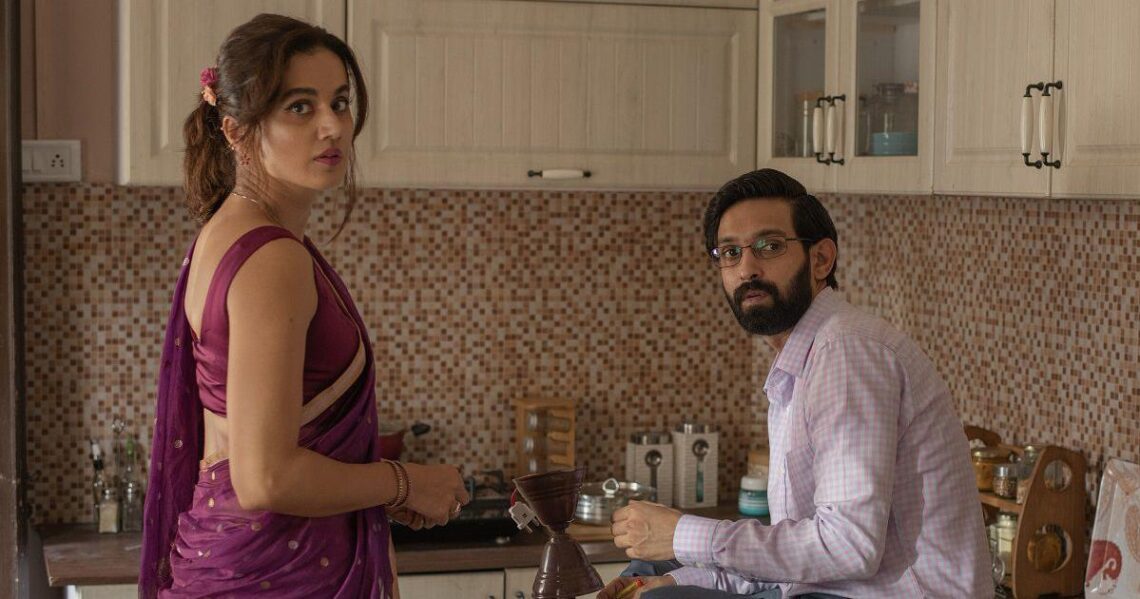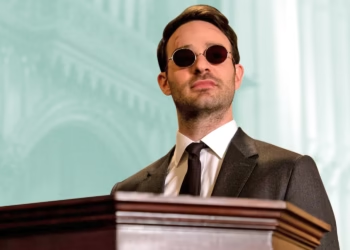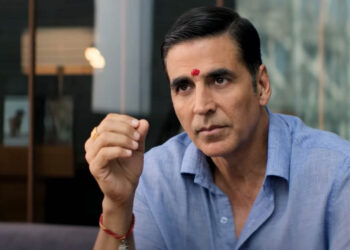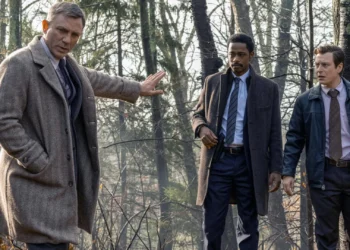With a massive cylinder blast, the husband’s mutilated body, a lover on the run, a widow who is the suspect, and a local inspector, played by Aditya Srivastava, attempting to extract a confession from the suspect in the first few minutes of the film, you get the feeling that ‘Haseen Dillruba‘ is all set to deliver a powerful crime thriller set in a small town that will keep you on the edge of your seat.
So throughout the movie, some brilliant scenes will catch your eye. We have made a list of such scenes that were our favourite and probably will be yours too or if you have already watched Haseen Dilruba.
Scene 1:
Rishu (Vikrant Massey) and his family are travelling to Delhi to meet a girl and ask for her hand in marriage. His mother (Yamini Das) explains to him that by meeting her only once, he doesn’t have to say yes to the girl. Later, she also mentions how ‘Sanskari,’ ‘Homely,’ and generally good the girl is.
Finally, they arrive at Rani Kashyap’s (Taapsee Pannu) residence. Rishu and her mother are conversing when he notices Rani by her room window, and they exchange glances.

Why do I like this scene?
This scene establishes the tone of the film. You’ll see what I mean. Rani is dressed in a purple saree, and the entire scene has a violet tint to it. The director attempts to convey that there is a mystery here but that the characters are also sensitive.
This sequence reveals the characters’ personalities, such as Rishu, who is a soft-spoken, shy young man who will do or say anything his parents ask. On the other hand, Rani is a normal girl who is brave, energetic, and will do whatever she wants. Both characters believe they must settle for an arranged marriage because Rani has had unsuccessful relationships, and Rishu, an introvert, has never found love. When both of them make eye contact, it reveals how confident Rani is and how underconfident Rishu is.
Scene 2:
It’s Rani’s first day at her mother-in-law’s residence. Rishu, his mother, and his father are waiting for Rani, their newlywed daughter-in-law, to step from the bedroom to assist her mother-in-law with some household chores. She walks into the room, sits at the table with everyone, and notices tea. She says, “Ah, chai,” and starts to pour herself some, but they’re actually isn’t any.
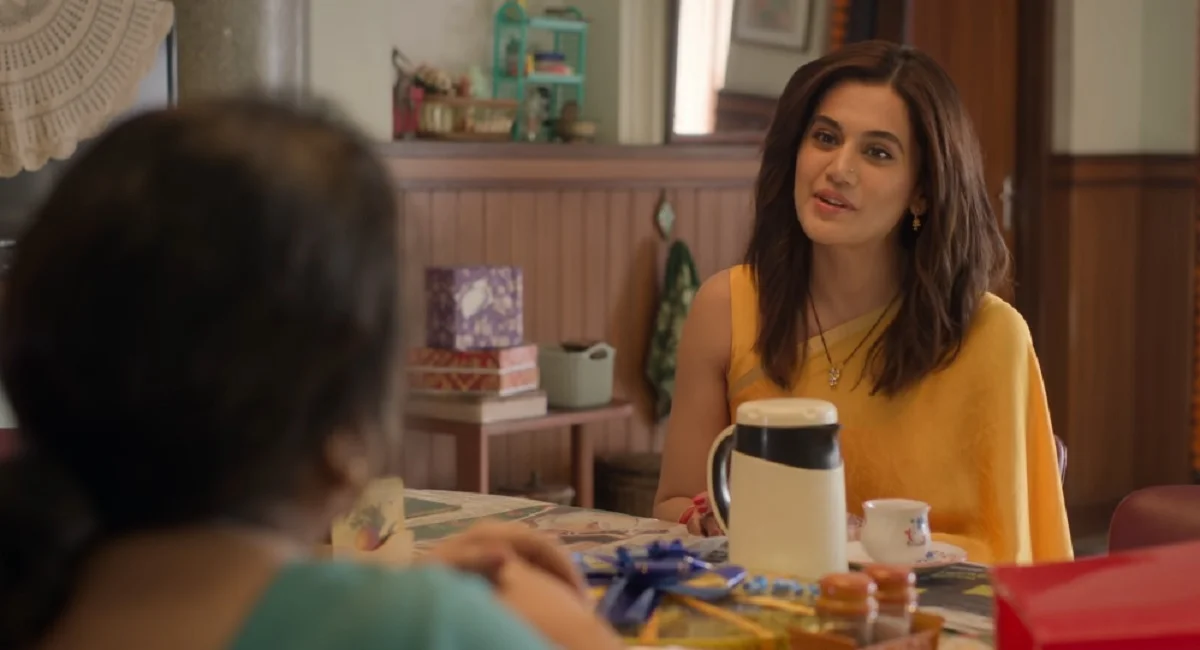
Why do I like this scene?
Rani has no idea she had to perform something she has never done before. They had the traditional expectation that their daughter-in-law will make tea first thing in the morning, as does every Indian family once a child marries. Taapsee’s character is open about her inability to cook or even make tea. This scenario is fluid and funny, making it relatable to the audience.
Scene 3:
Rishu returns home from work and takes a seat at the table for dinner. Rishu is eating and conversing with Rani about how they should restart their relationship. Rani presents the mutton that she prepared, especially for Neel (Harshvardhan Rane). Rani admits that she cooked mutton for Neel, that she had fallen in love with him, that he had abandoned her, and that she is now stranded here. Rishu continues to eat while looking at her and compliments her because the mutton is cooked well.

Why do I like this scene?
This scenario depicts the beginning of Rishu and Rani’s relationship. It also displays the development of both of their personalities. Vikrant Massey demonstrated a range of emotions in this single picture, going from a passive, naive man with an acute lack of self-awareness to a vengeful man riddled with despair and hopelessness.
When it comes to the colour tone set, there is a hint of yellow. Even Taapsee’s character wears yellow, implying that the director indicates betrayal and dishonesty.
Scene 4:
Rishu is heartbroken, so he heads to Noida, where Neel lives, instead of going to work. Rishu locates Neel and begins following him; he starts walking faster and holds a screwdriver in his hand; he then begins running and digs at Neel. Neel turns around and attempts to stop Rishu, but he ignores him and is beaten black and blue by his cousin’s brother.
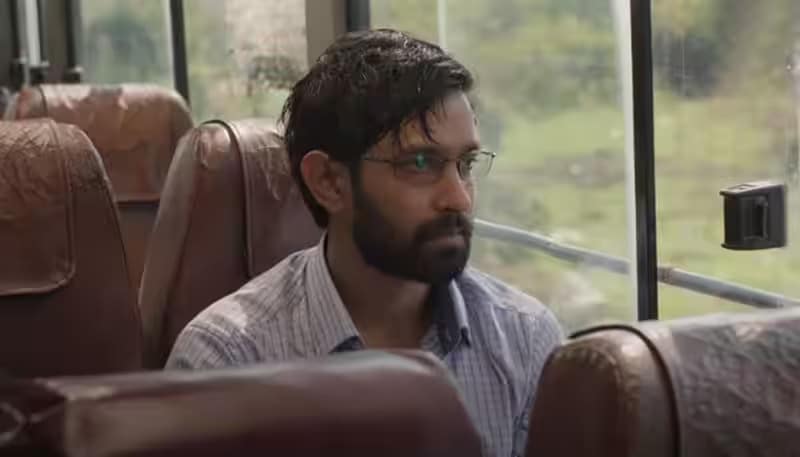
Rishu sits on the ground, pondering what transpired, and Neel invites him to join him. They discuss what occurred. Rishu explains how he desired Rani’s heart rather than her body. He adds how everyone thinks he’s a moron and refuses to speak up.
Why do I like this scene?
This scene depicts how an ordinarily calm person has devolved into a violent individual. Whatever transpired between his wife and his cousin’s brother has left him broken, and all he wants now is vengeance. The attitude, mannerisms, and even the way Vikrant Massey walks focus on his capacity to adapt.
He even goes so far as to retaliate against his wife for what she did. His character went through drastic changes, which I found appealing because of how effortless he made it appear. I can’t imagine anyone else being able to play this character as brilliantly as he did.
Scene 5:
Things are starting to look up as Rani and Rishu fight to solve their problem and make their romance work. She is preparing a meal for him, and when Rishu leaves for work and forgets his wallet, she chases him down to give him the wallet. It continues to happen, indicating that they are ready to trust each other.
Why do I like this scene?
This entire sequence of Rani attempting to reclaim Rishu and discovering that he loves her beyond her wildest dreams is breathtaking. There are some details of Rani’s relationship with her mother-in-law displayed. Rishu accepts what happens but loves her and accepts that she is trying everything she can to make this relationship work.
The entire sequence is depicted with a shade of brown, which explains their relationship and home’s comfort, stability, and simplicity.
Also Read: Review of Grahan: A Well-Crafted Narrative That Will Keep You Captivated By The Screen


